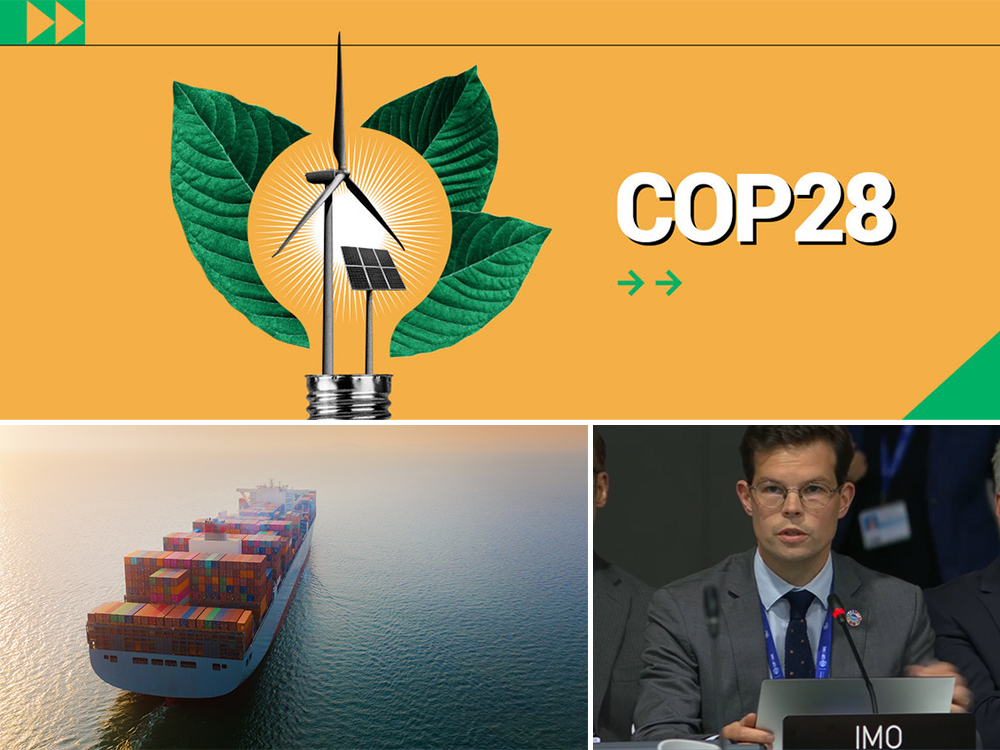IMO has presented its latest work on reducing GHG emission from ships, including the adoption of the 2023 IMO GHG Strategy, at the United Nations Climate Change conference (OP 28), meeting in Dubai, United Arab Emirates (30 November–12 December).
The IMO submission to the Subsidiary Body for Scientific and Technological Advice (SBSTA) was presented by Mr. Camille Bourgeon from the IMO Secretariat. In July, IMO adopted the 2023 IMO Strategy on Reduction of GHG Emissions from Ships, with a commitment to reach net-zero GHG emissions by or around, i.e. close to, 2050, taking into account different national circumstances. Levels of ambition include the uptake of zero or near-zero GHG emission technologies, fuels and/or energy sources to represent at least 5%, striving for 10%, of the energy used by international shipping by 2030.
Mr. Bourgeon highlighted IMO's ongoing work to support a just transition in shipping - particularly for the world's seafarers.
IMO has adopted a range of measures to improve shipping's energy efficiency. Mr. Bourgeon reported on ongoing impact assessment work in order for Member States to decide and adopt - in 2025 - further measures to reduce GHG emissions from ships, including a technical element, namely a goal-based marine fuel standard regulating the phased reduction of the marine fuel's GHG intensity; and an economic element, on the basis of a maritime GHG emissions pricing mechanism.
IMO will take part in a number of events during COP 28 – see the list here: IMO-at-COP-28.aspx.
On 9 December, IMO, the United Nations Conference on Trade and Development (UNCTAD) and the International Renewable Energy Agency (IRENA) are holding a side-event at COP 28: "The 2023 IMO GHG Strategy: defining the global level-playing-field for shipping decarbonization". This side event will outline the ambitions in the 2023 GHG Strategy and highlight the need for collaboration amongst all stakeholders to reach the goals. (Programme here.)
